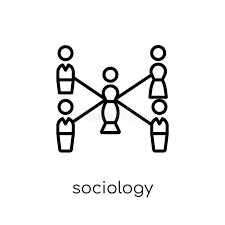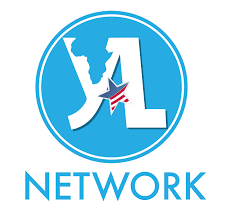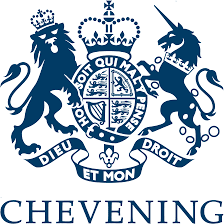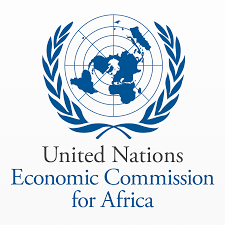Kohli Fellowships for Sociology 2025
Kohli Fellowships for Sociology
The Kohli Fellowship for Sociology promotes researchers who have successfully finished their dissertation with excellent success. We provide financial support for a two-year postdoctoral stay at the WZB in Berlin or the EUI in Fiesole/Florence. This time should be used to engage in a new research project, to advance publications, and to develop research collaborations.
As Kohli Fellow at the EUI you will join the Max Weber Program for Postdoctoral Studies at the institute. You are appointed to one of the faculty at the EUI as your advisor, who will help you develop and expand your qualifications while you work on your own research project. Within the scope of your project, you have the opportunity to conduct field work, participate in internal and external training and national and international conferences, and organize your own workshop. Throughout your time as a postdoctoral researcher, you are part of the Max Weber Program which allows you to connect with fellow post-docs and participate in the events offered by the program.
Application
Scholars of all nationalities whose research relates to the respective institute’s research program are eligible to apply for the Kohli Fellowship for Sociology. We particularly welcome research projects with a focus on life course and generational issues – but other topics are equally considered. Applicants must have held their doctoral degree for no longer than three years before the starting date of the fellowship. Applicants must have submitted and defended their doctoral dissertation before the contract begins.
The Kohli Foundation for Sociology and the EUI are currently accepting applications for the Kohli Fellowship for Sociology. Interested candidates can apply within the framework of the MWP’s general call for applications. The application should include the following documents:
- A Curriculum Vitae, including a list of publications
- An ‘Academic Career Statement’
- A Research Proposal
- The names of two to three academic referees and at least two letters of reference
Selection
Successful candidates are chosen in close consultation with the academic host institutions on the basis of scholarly excellence, a research proposal outlining a project to be pursued as Kohli Fellow, and an interview in person or by video. Kohli Fellows are expected to reside either in Berlin or Florence and actively participate in the intellectual life of their institute. The Kohli Foundation for Sociology particularly welcomes applications from women and scholars belonging to academically underrepresented groups. We select one fellow per year.
For more information visit, Kohli Fellowship for Sociology
Wigwe University Scholarship 2024 for Scholars
About The scholarship
Scholarships
The merit-based scholarship is available to students enrolling at the Wigwe university in 2024.
This scholarship is aimed at supporting prospective students who have displayed exceptional academic achievements, leadership and entrepreneurship capabilities and a zest for continuous learning.
The scholarship will not only alleviate the financial burden of higher education but also provide an opportunity to achieve academic goals in Africa’s leading institution of higher learning supporting students in an environment to thrive and make meaningful impacts as the next generation of fearless leaders.
For more information and eligibility visit, Wigwe University
Application Process
- Please visit the Wigwe University Portal to start your admission process: WU Portal (wigweuniversity.edu.ng)
- After completing your application on the admission portal, proceed to the Scholarship page on the website and click on Apply Now
- Successful candidates will be notified by the first week of September
- Application ends on the 26th of August 2024.
This does not apply to Direct Entry Candidates
PASET Regional Scholarship and Innovation Fund (Rsif)
BACKGROUND
The Partnership for skills in Applied Sciences, Engineering and Technology (PASET) is an African-led initiative that aims to close the skills gap in the applied sciences, engineering and technology (ASET) necessary for socio-economic transformation in sub-Saharan Africa (SSA).
Rsif aims to train quality PhD students and post-doctoral researchers to address the human resource gap of highly qualified specialists in the fields of applied sciences, engineering, and technology (ASET) and to contribute to improving research and innovation capacities in those fields in SSA. Rsif also supports the strengthening of research and innovation ecosystems at selected African Host Universities (AHU) by providing funding through competitive grants. Rsif supports training, research and innovation in five Priority Thematic Areas: (1) ICT including big data and artificial intelligence, (2) Food security and agri-business, (3) Minerals, mining and materials engineering, (4) Energy including renewables and (5) Climate change.
ELIGIBILITY
Eligible applicants must:
- Be a citizen of any country in sub-Saharan Africa.
- Have a relevant master’s degree related to the Rsif fields of study.
- Meet the specific admission requirements of the Rsif AHU that hosts the PhD program.
- Be 35 years of age and below at the date of application.
- Be willing to enrol full-time in a PhD program at an Rsif AHU in the 2024-2025 academic year.
- Should not be holding another PhD scholarship when applying to the Rsif PhD scholarship.
- Be willing to spend 6-12 months in a ‘sandwich’ training at an international partner university, research institute or private company.
- Be willing to work on a research topic that aligns with and contributes to national or regional development in Africa.
- Priority for the scholarships will be given to women and existing young academic faculty who do not have a PhD.
For more information visit, Rsif
British Academy Global Innovation Fellowship
Global Innovation Fellowships
Scheme overview
The programme is supported under the UK Government’s International Science Partnerships Fund (ISPF). The £337m fund is designed to enable potential and foster prosperity. It puts research and innovation at the heart of our international relationships, supporting UK researchers and innovators to work with peers around the world on the major themes of our time: planet, health, tech, and talent. The fund is managed by the Department for Science, Innovation and Technology and delivered by a consortium of the UK’s leading research and innovation bodies.
The objective of the Global Innovation Fellowships is to provide opportunities to UK-based early- and mid-career researchers from across the humanities and social sciences to develop their skills, networks and careers in the creative and cultural, public, private and policy sectors to address challenges that require innovative approaches and solutions. Through the Global Innovation Fellowships, researchers in the SHAPE community will be supported to create new and deeper links beyond academia, so enabling knowledge mobilization and translation, as well as individual skills development.
For more information visit, Global Innovation Fellowship
Climate Policy Creative Fellowship 2024
About Us
The Climate Action Unit is a group of experts in neuroscience, science communication and facilitation.
Mandela Washington Fellowship for Young African Leaders 2025
Learn more about how to be a part of the next generation of African leaders!
The Mandela Washington Fellowship will bring up to 700 young leaders to the United States in the summer of 2025 for a comprehensive executive-style program that is designed to build skills and empower Fellows to lead in their respective sectors and communities.
Selection Process and Criteria
The Mandela Washington Fellowship selection process is a merit-based open competition. After the deadline, independent readers will review all eligible applications. Following this review, chosen semi-finalists will be interviewed by the U.S. embassies or consulates in their home countries. Selected semi-finalists will be required to participate in these in-person interviews in their home country within Africa. If advanced to the semi-finalist round, applicants must provide a copy of their international passport (if available) or other government-issued photo identification at the time of the interview. Selected Finalists are required to attend the mandatory Pre-Fellowship Orientation in their home country within Africa.
Who is eligible to apply?
The Mandela Washington Fellowship does not discriminate against applicants because of race, ethnicity, color, national origin, sex, age, religion, geographic location, education, income, socio-economic status, ability, sexual orientation, gender identity or expression, or any other protected characteristic as established by U.S. law. The Fellowship is committed to fairness, equity, inclusion, and accessibility.
The Mandela Washington Fellowship is open to young African leaders who meet the following criteria:
- Are between the ages of 25 and 35 as of the application deadline (September 10, 2024), although exceptional applicants ages 21-24 may be considered;
- Are not U.S. citizens or permanent residents of the United States;
- Are eligible to receive a United States J-1 visa;
- Are not employees or immediate family members (spouses, parents, children, or siblings) of employees of the U.S. Government (including a U.S. embassy or consulate, USAID, or other U.S. Government entity);
- Are proficient in reading, writing, and speaking English (additional guidance coming for applicants who are deaf);
- Are citizens of one of the following countries: Angola, Benin, Botswana, Burkina Faso, Burundi, Cameroon, Cabo Verde, Central African Republic, Chad, Comoros, Republic of the Congo, Democratic Republic of the Congo (DRC), Cote d’Ivoire, Djibouti, Equatorial Guinea, Eritrea, Eswatini, Ethiopia, Gabon, The Gambia, Ghana, Guinea, Guinea-Bissau, Kenya, Lesotho, Liberia, Madagascar, Malawi, Mali, Mauritania, Mauritius, Mozambique, Namibia, Niger, Nigeria, Rwanda, Sao Tome and Principe, Senegal, Seychelles, Sierra Leone, Somalia, South Africa, South Sudan, Sudan, Tanzania, Togo, Uganda, Zambia, or Zimbabwe;
- Are residents of one of the above countries and will be permanently residing there as of May 1, 2025 and at the beginning of the Fellowship in June 2025; and
- Are not Alumni or prior participants of the Mandela Washington Fellowship.
What are the criteria for selection?
The following criteria will be used to evaluate applications (not in order of importance):
- A proven record of leadership and accomplishment in business or entrepreneurship, civic engagement, and/or public/government service;
- A demonstrated commitment to public or community service, volunteerism, or mentorship;
- The ability to work cooperatively in diverse groups and to respect the opinions of others;
- Strong social and communication skills;
- An energetic, positive, and flexible attitude;
- A demonstrated knowledge of, interest in, and professional experience in the preferred sector/Fellowship track and concrete goals for applying lessons knowledge and skills gained from the Fellowship to current and/or future work; and
- A commitment to return to Sub-Saharan Africa and contribute skills and talents to build and serve their communities.
FOR MORE INFORMATION VISIT, Mandela Washington Fellowship
Getty Conservation Guest Scholars 2025-2026
Conservation Guest Scholars
Through the Conservation Guest Scholars Program, Getty provides opportunities for established scholars or professionals who have attained distinction in the cultural heritage conservation field.
Recipients are in residence at the Conservation Institute for either a three-month or six-month residency, in which they pursue their own projects free from work-related obligations, make use of research collections at the Getty Center and Getty Villa, and participate with other Getty scholars, fellows, and interns in the intellectual life of Getty.
ELIGIBILITY
Proposals for postdoctoral research or research that contributes to a PhD or other academic degree will not be considered. Recent PhDs in chemistry and other physical or material sciences should apply to the Postdoctoral Fellowship in Conservation Science.
A related opportunity, the Getty Scholars Program at the Getty Research Institute, supports innovative research about art, conceived in the broadest terms, and its histories, by providing a locus for international scholars to forge collaborations across disciplines and professional practices, while also developing new audiences for their work.
EVALUATION CRITERIA
Conservation Guest Scholar Grants are awarded on a competitive basis. Applications are evaluated based on the following criteria:
- overall quality of the application;
- how the project would contribute to the advancement of practice in the conservation field;
- applicant's past achievements;
- applicant's qualifications to undertake the project; and
- how the project would benefit from the resources at Getty, including Getty's library and collections.
FOR MORE INFORMATION VISIT, GETTY Conservation Guest Scholars
Coda Story Bruno Reporting Fellowships 2024-2025
Coda Story’s 2024-25 Bruno Reporting Fellowships
Applications are now open for the 2024-25 Bruno Reporting Fellowships to fund an enterprise feature relevant to Coda Story’s topics of interest. The 2024-25 Fellowships support two 10-month reporting projects that culminate in a notable story to be published on Coda’s website and editorial partners’ websites.
The Bruno Reporting Fellowship is designed to benefit early career journalists working in countries where journalism is under-resourced and the issues pertinent to Coda’s editorial concerns are under-scrutinized. This year, the fellowship is open to one Georgian reporter, who will contribute research and reporting on Coda’s special collaboration with Stranger’s Guide magazine. The fellowship is also open to one reporter of any nationality currently living in exile, who will work closely on the project connected to the experience of exile in the digital age. Applicants must have excellent written and spoken English and have a track record of writing reported pieces in English.
Bruno Fellows Alumni
2020-21 fellow: Alizeh Kohari (Pakistan)
2022-23 fellow: Anna-Catherine Brigida (US). Anna-Catherine’s article on surveillance technology in Honduras won the 2023 Fetisov Journalism Award
2023-24 fellow: Thrang Hong Vu (Vietnam)
Applications are due by 11:59pm GMT on August 30, 2024.
To apply for the fellowship, please send the following to bruno@codastory.com
- A cover letter introducing yourself and telling us why you deserve the fellowship and what you would like to focus on.
- A pitch for one long-form story that you would like to work on during your fellowship and why Coda is the right platform for it.
- Resume.
- A brief cover letter indicating why the fellowship is right for you.
- Three published clips (links or PDFs are fine).
FOR MORE INFORMATION VISIT, Coda Story Bruno Reporting Fellowships
Chevening LSE Fellowship 2025-2026
About Chevening
Chevening offers fully funded scholarships and fellowships to individuals with ideas to create positive change.
Chevening is the UK government’s international scholarships and fellowships programme.
We’ll nurture confidence in your ideas and give you the education, network, and conviction to bring those ideas to fruition.
Funded by the Foreign, Commonwealth and Development Office (FCDO) and partner organisations, we offer individuals who show potential to inspire, inform, and influence positive change the opportunity to study at a UK university to gain a UK educational qualification.
Chevening Scholars study subjects in a diverse range of fields, and go on to implement their ideas for positive change in a range of sectors.
Chevening Fellowships offer mid-senior level professionals the opportunity to undertake specialised short courses or research placements at UK universities and institutions.
After completing their period of study in the UK, scholars and fellows return home and join our global network of over 60,000 alumni.
Chevening is more than just a year spent in the UK, it’s a community for life. Find out more about the benefits of Chevening.
To be eligible for a Chevening Scholarship you must:
- Be a citizen of a Chevening-eligible country or territory.
- Commit to returning to your home country for at least two years after your scholarship ends.
- Have at least two years of work experience (2,800 hours).
- Hold an undergraduate degree that qualifies you for a UK master’s programme.
- Apply to three different and eligible UK university courses. You must have received an unconditional offer from at least one of these course choices by the references and education documents deadline listed on the application timeline.
FOR MORE INFORMATION VISIT, CHEVENING
Africa Fellowship for Young Energy Leaders (AFYEL) 2024
Africa Fellowship for Young Energy Leaders
he Africa Energy Fellowship for Young Energy Leaders is an education venture designed to invest into the next generation energy leaders who will deliver a sustainable access to energy and ultimately a zero carbon Africa.
The ambition of the Program is to train recent graduates of Physics, Electricial and Electronic Engineering, Mechanical Engineering, Building / Construction Engineering, Physics, Economics, Mathematics, Accounting, Finance and Solar Energy on core aspects of Renewable Energy Technology and opportunities for career advancement in the energy value chain.
Program structure








